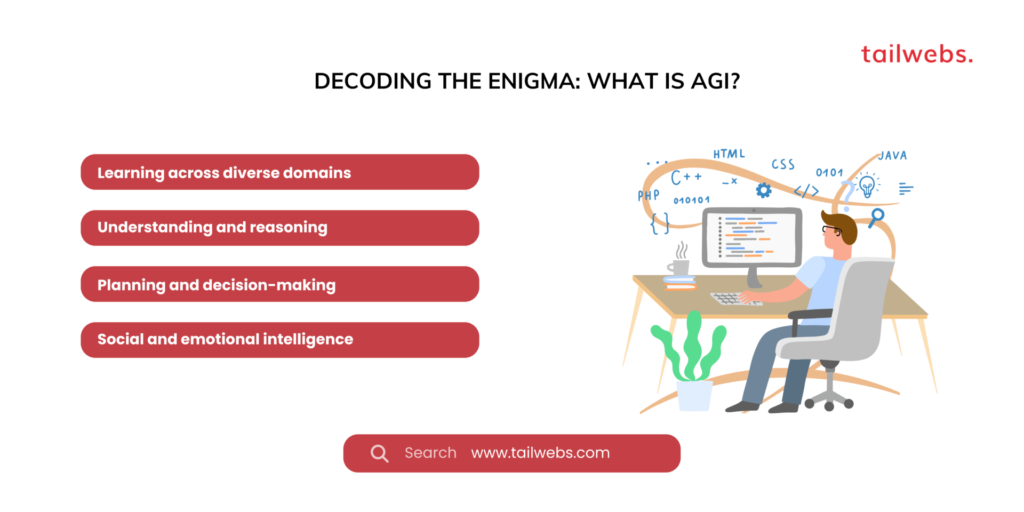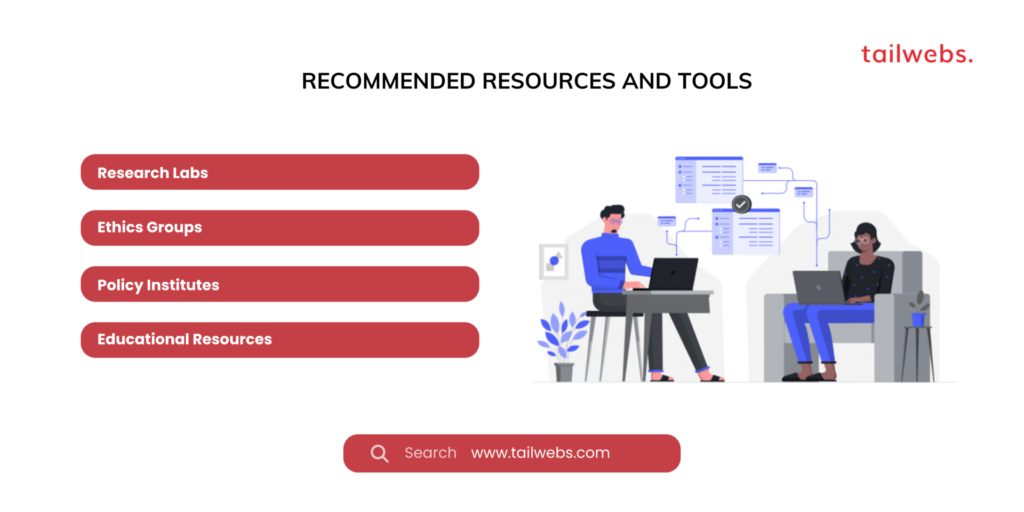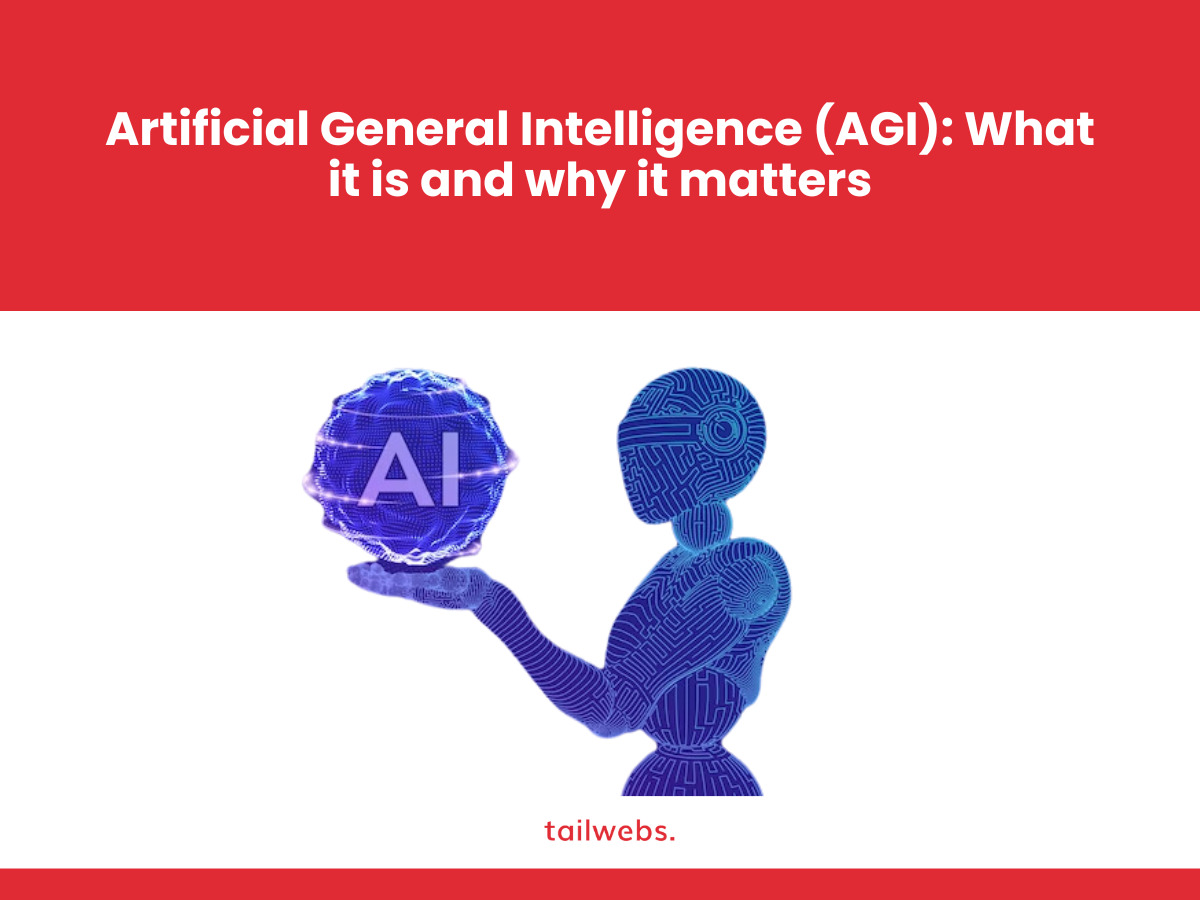Artificial General Intelligence (AGI): Unveiling the Enigma, Exploring the Impact
Imagine a world where machines not only outperform us in specific tasks, but can learn, adapt, and think like humans. This is the alluring and enigmatic realm of Artificial General Intelligence (AGI), a hypothetical type of AI that, if achieved, could revolutionize everything we know about technology, society, and ourselves. While still on the distant horizon, AGI sparks both excitement and apprehension, raising crucial questions about its potential benefits, risks, and ethical implications. Let’s embark on a journey to demystify this fascinating concept and explore why it matters for all of us.
Decoding the Enigma: What is AGI?
Unlike current AI systems focused on specific tasks, AGI envisions machines exhibiting human-like general intelligence. This entails:
Learning across diverse domains:
Mastering various skills and adapting to new situations without explicit programming.
Understanding and reasoning:
Grasping concepts, drawing inferences, and solving problems creatively.
Planning and decision-making:
Setting goals, evaluating options, and acting strategically in complex environments.
Social and emotional intelligence:
Recognizing and responding to human emotions, interacting seamlessly in social settings.

Stats Unveiling the Quest:
- Investment in AGI research is growing, exceeding $1 billion annually. (CB Insights, 2023)
- Over 60% of experts believe AGI will be achieved within the next 50 years. (Pew Research Center, 2023)
- The global impact of AGI on the economy could reach $150 trillion by 2100. (PwC, 2021)
Why Does AGI Matter? A Symphony of Potential:
Revolutionizing Healthcare:
Personalized medicine, early disease detection, and faster drug discovery through AI-powered analysis.
Enhancing Sustainability:
Optimizing resource management, tackling climate change with AI-driven solutions.
Boosting Scientific Progress:
Accelerating scientific discovery through automated research and problem-solving.
Transforming Industries:
Automation, personalized user experiences, and increased efficiency across various sectors.
Navigating the Harmonies: Risks and Ethical Considerations:
Existential Risks:
Concerns about superintelligence surpassing human control and posing potential threats.
Job Displacement:
Automation driven by AGI could lead to widespread job losses and economic disruption.
Weaponization of AI:
Ethical concerns surround the potential use of AGI for autonomous weapons systems.
Social Inequality:
Unequal access to AGI could exacerbate existing societal disparities.

Building a Harmonious Future: Towards Responsible Development:
Open and Transparent Research:
Collaborative and ethical research practices to ensure responsible development.
Human-Centered AI:
Designing AI systems that prioritize human values and well-being.
Strong Governance and Regulations:
Establishing ethical frameworks and regulatory measures to mitigate risks.
Skills Development and Education:
Preparing individuals for the changing landscape of work in an AI-driven world.
Recommended Resources and Tools:
Research Labs:
OpenAI, DeepMind, Allen Institute for Artificial Intelligence
Ethics Groups:
Future of Life Institute, Center for Security and Emerging Technology
Policy Institutes:
Berkman Klein Center for Internet & Society, Centre for the Governance of AI
Educational Resources:
Coursera AI for Everyone Specialization, MIT OpenCourseware Introduction to Artificial Intelligence

A Journey Yet to Begin: Conclusion
While AGI remains a future possibility, understanding its potential impact and potential risks is crucial for shaping its development responsibly. By fostering open dialogue, prioritizing ethical considerations, and focusing on human-centered design, we can ensure that AGI serves as a powerful tool for progress, enriching our lives and building a brighter future for all.




